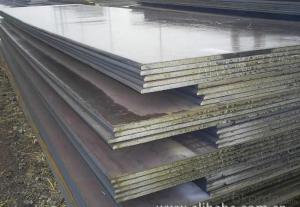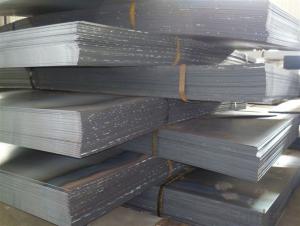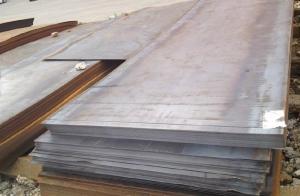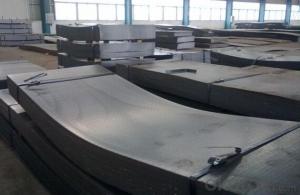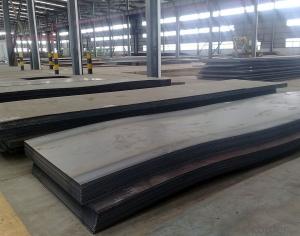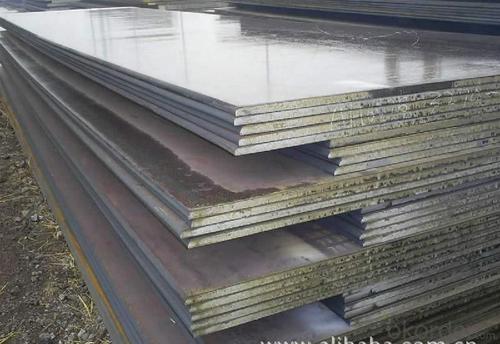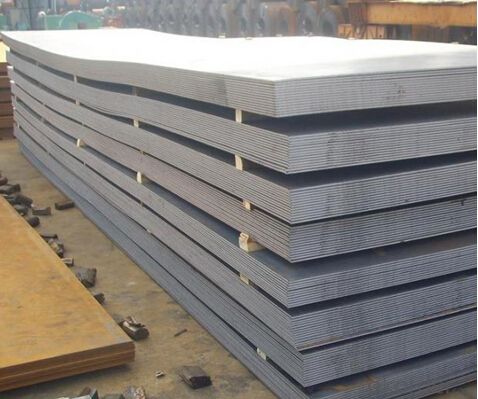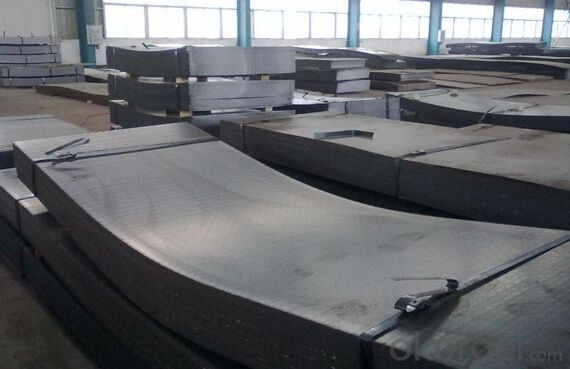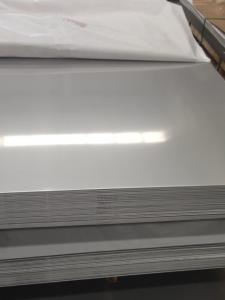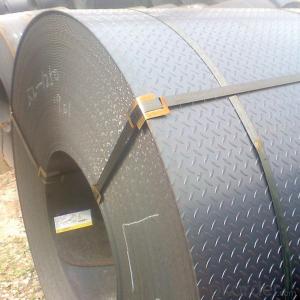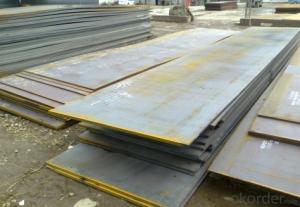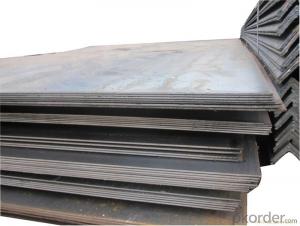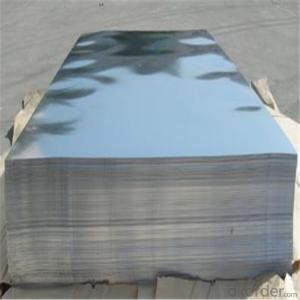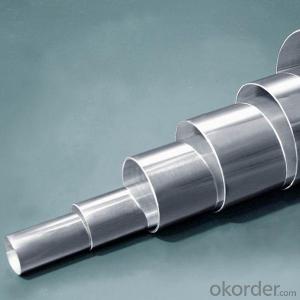5CrNiMoV Cold Rolled Steel Plate Different Types of Steel Sheet
- Loading Port:
- Tianjin
- Payment Terms:
- TT or LC
- Min Order Qty:
- 25 m.t.
- Supply Capability:
- 100000 m.t./month
OKorder Service Pledge
OKorder Financial Service
You Might Also Like
Specification
5CrNiMoV Cold Rolled Steel Sheet Prices Different Types of Steel Plate
| C | Si | P | S | yield Strength MAp | Tensile strength MAp | Elongation % | |
A36 | 0.24 | 0.4 | 0.045 | 0.03 | 250 | 400-520 | 26 | |
| C | Si | Mn | P | S | Cu |
|
|
A283 | ≤0.27 | 0.15-0.4 | ≤0.9 | ≤0.035 | ≤0.04 | ≥0.2 |
|
|
Thickness: | 6mm, 8mm, 12mm, 16mm, 20mm, 25mm, 30mm, 50mm, 80mm, 100mm, 150mm, 200mm | |||||||
Width: | 1500mm, 1800mm, 2000mm, 2200mm, 2500mm | |||||||
Length: | 6000mm, 8000m, can cut to width and length | |||||||
Packing: | according to customer‘s require or export’s standard | |||||||
Delivery time: | 7 days for stock sizes, 20-25 days for new production sizes | |||||||
Related Products Overviews
Product Name | Typical Grades | Diameter(mm) | Standard Adopted |
Carbon Steel | 20 (1020/S20C/C22) |
Ø16-Ø300 |
GB/SAE/ JIS/DIN |
40 (1040/S40C/C40) | |||
45 (1045/S45C/C45) | |||
Bearing Steel | GCr9 (51100/SUJ1) |
Ø12-Ø250 | |
GCr15 (52100/SUJ2/100Gr6) | |||
GCr9SiMn (A485-Gr.1/SUJ3) | |||
Cr-Mo Steel | 20Cr (5120/SCr420H/20Cr4) |
Ø12-Ø250 | |
40Cr (5140/SCr440/41Cr4) | |||
42CrMo(4140/SCM440/42CrMo4) | |||
Gear Steel | 20CrNiMo |
Ø16-Ø600 | |
20CrMn(5115/SMnC420/20MnCr5) | |||
20CrNiMo(8620/SNCM220/20CrMiMo2) |
CNBM International are mainly concentrate on Cement, Glass, Iron and Steel, Ceramics industries and devotes herself for supplying high quality series of refractories as well as technical consultancies and logistics solution.
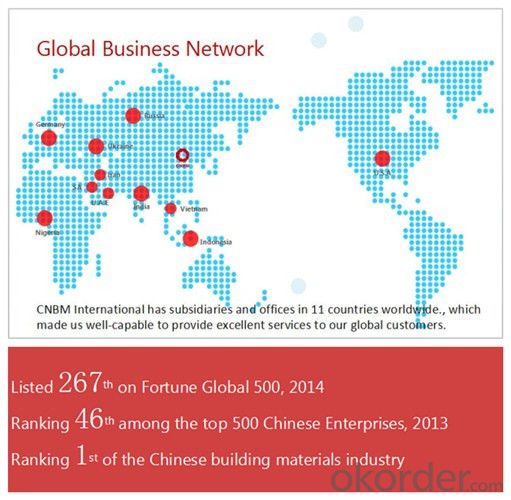
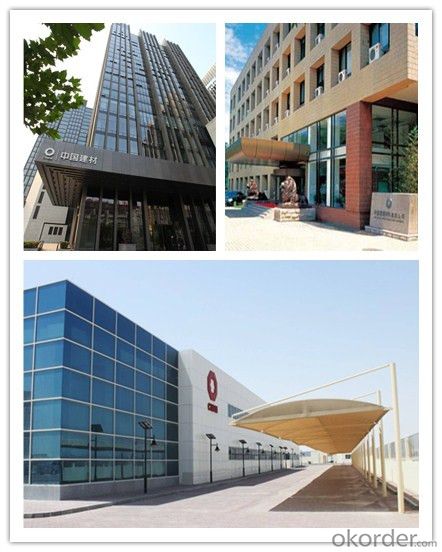
After-sale service | 1. CNBM provides the services and support you need for every step of our cooperation. We’re the business partners you can trust; you can relax and get on with doing business. 2. For any problem, please kindly contact us at any your convenient time, we’ll reply you in our first priority within 24 hours |
Advantages
| 1. Industry experience over 20 years. 2. Shipment of goods -More than 70 countries worldwide. 3. The most convenient transport and prompt delivery. 4. Competitive price with best service. 5. High technical production line with top quality products. 6. High reputation based on best quality products. |
| Packaging | Sea worthy packing /as per customer's packing instruction |
| Delivery | 15 ~ 40 days after receiving the deposit |
- Q: What are the main factors affecting the wear resistance of special steel?
- The wear resistance of special steel is impacted by a variety of factors. To begin with, the composition of the steel plays a vital role. The addition of specific alloying elements, such as chromium, vanadium, and tungsten, can significantly enhance its wear resistance. These elements create hard carbides or nitrides within the steel matrix, thereby increasing its hardness and ability to withstand wear. Furthermore, the wear resistance is greatly influenced by the heat treatment process employed. By utilizing techniques like quenching and tempering, the steel can be hardened to achieve the desired level of wear resistance. The heat treatment process also aids in refining the microstructure of the steel, making it more resistant to wear and deformation. Additionally, the microstructure of the steel is another crucial factor. The presence of fine grains and a uniform distribution of carbides or other reinforcing phases within the steel matrix greatly enhances its wear resistance. Furthermore, the existence of retained austenite, which is a metastable phase, can also contribute to improved wear resistance. Moreover, the hardness of the steel is a fundamental determinant of its wear resistance. A higher hardness level generally results in better wear resistance, as it provides resistance against the abrasive forces exerted on the steel surface. Lastly, the design and surface finish of components made from special steel also play a role in their wear resistance. The shape, size, and surface roughness of the components can impact the distribution and magnitude of the contact stresses on the steel, thereby influencing its wear resistance. In conclusion, the wear resistance of special steel is influenced by factors such as composition, heat treatment, microstructure, hardness, and the design and surface finish of the components. By carefully considering these factors, engineers can optimize the wear resistance of special steel for various applications.
- Q: How is special steel used in the textile industry?
- Special steel is used in the textile industry for various applications such as manufacturing textile machinery, fabricating cutting tools, and producing components for textile production processes. It provides the necessary strength, durability, and precision required to handle the high-speed and high-pressure operations involved in textile manufacturing.
- Q: Can special steel be used in the production of medical implants?
- Yes, special steel can be used in the production of medical implants. Special steel alloys such as stainless steel or titanium alloys are commonly used in the manufacturing of medical implants due to their high strength, corrosion resistance, and biocompatibility properties. These materials are carefully selected to ensure compatibility with the human body and to promote successful implantation and long-term functionality.
- Q: What are the properties of stainless tool steel?
- Stainless tool steel possesses several properties that make it highly desirable for various applications. Firstly, it exhibits excellent corrosion resistance due to its high chromium content, making it resistant to rust and tarnish. Secondly, it has high hardness and wear resistance, allowing it to retain its cutting edge and withstand heavy use without dulling or chipping easily. Moreover, stainless tool steel has good toughness, which means it can withstand impact and shock loads without fracturing. It also demonstrates good dimensional stability, meaning it maintains its shape and size even under extreme temperatures and mechanical stress. Lastly, stainless tool steel is known for its machinability and can be easily formed and fabricated into various shapes and sizes.
- Q: Can special steel be used in the paper manufacturing industry?
- Yes, special steel can be used in the paper manufacturing industry. Special steels, such as stainless steel, can be used to make various components and equipment used in the paper manufacturing process. These steels offer excellent corrosion resistance, high strength, and durability, making them suitable for applications like paper machine parts, rollers, blades, and screens. Additionally, special steels can withstand high temperatures and mechanical stress, enhancing the overall efficiency and reliability of paper manufacturing operations.
- Q: What are the different international standards for special steel?
- Globally recognized are several international standards for special steel. Among the most prominent are the following: 1. AISI (American Iron and Steel Institute): Widely utilized in North America, AISI standards, also known as SAE (Society of Automotive Engineers) standards, provide specifications for diverse applications of special steel alloys. 2. ASTM (American Society for Testing and Materials): Encompassing a wide range of materials, including special steel, ASTM standards outline the chemical composition, mechanical properties, and testing procedures for various grades. 3. DIN (Deutsches Institut für Normung): Commonly employed in Germany and Europe, DIN standards define the composition, mechanical properties, and other characteristics of special steel alloys. 4. JIS (Japanese Industrial Standards): Extensively embraced in Japan and internationally recognized, JIS standards offer specifications for special steel alloys utilized in industries such as automotive, machinery, and construction. 5. BS (British Standards): Widely applied in the United Kingdom, BS standards furnish specifications for special steel alloys covering aspects such as chemical composition, mechanical properties, and testing procedures. 6. ISO (International Organization for Standardization): Globally acknowledged, ISO standards provide specifications for a broad range of materials, including special steel. These standards ensure uniformity and quality in the production and usage of special steel alloys across different countries. Crucial in ensuring the quality, compatibility, and performance of special steel alloys in various industries globally, these international standards establish a common framework for manufacturers, suppliers, and consumers to communicate and guarantee that the steel meets specific requirements and industry standards.
- Q: What are the properties of high-temperature stainless steel?
- High-temperature stainless steel possesses excellent heat resistance, corrosion resistance, and mechanical strength even at elevated temperatures. It retains its structural integrity and is capable of withstanding extreme thermal conditions, making it suitable for various high-temperature applications such as in aerospace, power generation, and chemical industries.
- Q: What are the common alloys used in special steel?
- Some common alloys used in special steel include stainless steel, tool steel, and high-speed steel.
- Q: How does special steel contribute to the robotics industry?
- Special steel contributes to the robotics industry by providing essential components that are durable, lightweight, and resistant to wear and corrosion. These high-quality steel materials are used in the construction of robot bodies, joints, gears, and other critical parts, ensuring superior performance, precision, and longevity of robotic systems. Additionally, special steel alloys offer excellent strength-to-weight ratios, enabling the development of more agile and efficient robots.
- Q: Can special steel be used in the production of musical instruments?
- Musical instruments can indeed benefit from the use of special steel. This type of steel, also known as tool steel or high-performance steel, has been specifically engineered to possess certain characteristics that make it suitable for specific applications. These characteristics include exceptional strength, durability, and resistance to both wear and corrosion. When it comes to musical instruments, special steel can be utilized in various components such as strings, springs, keys, valves, and reeds. For instance, piano strings are typically crafted from high-carbon steel, which provides the necessary strength and elasticity to produce the desired sound. Brass instruments like trumpets or saxophones have valves made from special steel alloys, which possess excellent corrosion resistance and can endure the repetitive movements required during play. Furthermore, special steel can also be employed in the production of instrument parts like guitar frets. Frets are metal strips embedded along the guitar's fingerboard, and they must be constructed from a material that is durable, wear-resistant, and able to maintain its shape over time. Special steel alloys, such as stainless steel or nickel-silver, are commonly chosen for this purpose. In summary, special steel brings forth a variety of properties that can improve the performance and longevity of musical instruments. With the utilization of this type of steel, manufacturers can create instruments that produce high-quality sound, withstand wear and tear more effectively, and enjoy a longer lifespan.
Send your message to us
5CrNiMoV Cold Rolled Steel Plate Different Types of Steel Sheet
- Loading Port:
- Tianjin
- Payment Terms:
- TT or LC
- Min Order Qty:
- 25 m.t.
- Supply Capability:
- 100000 m.t./month
OKorder Service Pledge
OKorder Financial Service
Similar products
Hot products
Hot Searches
Related keywords
